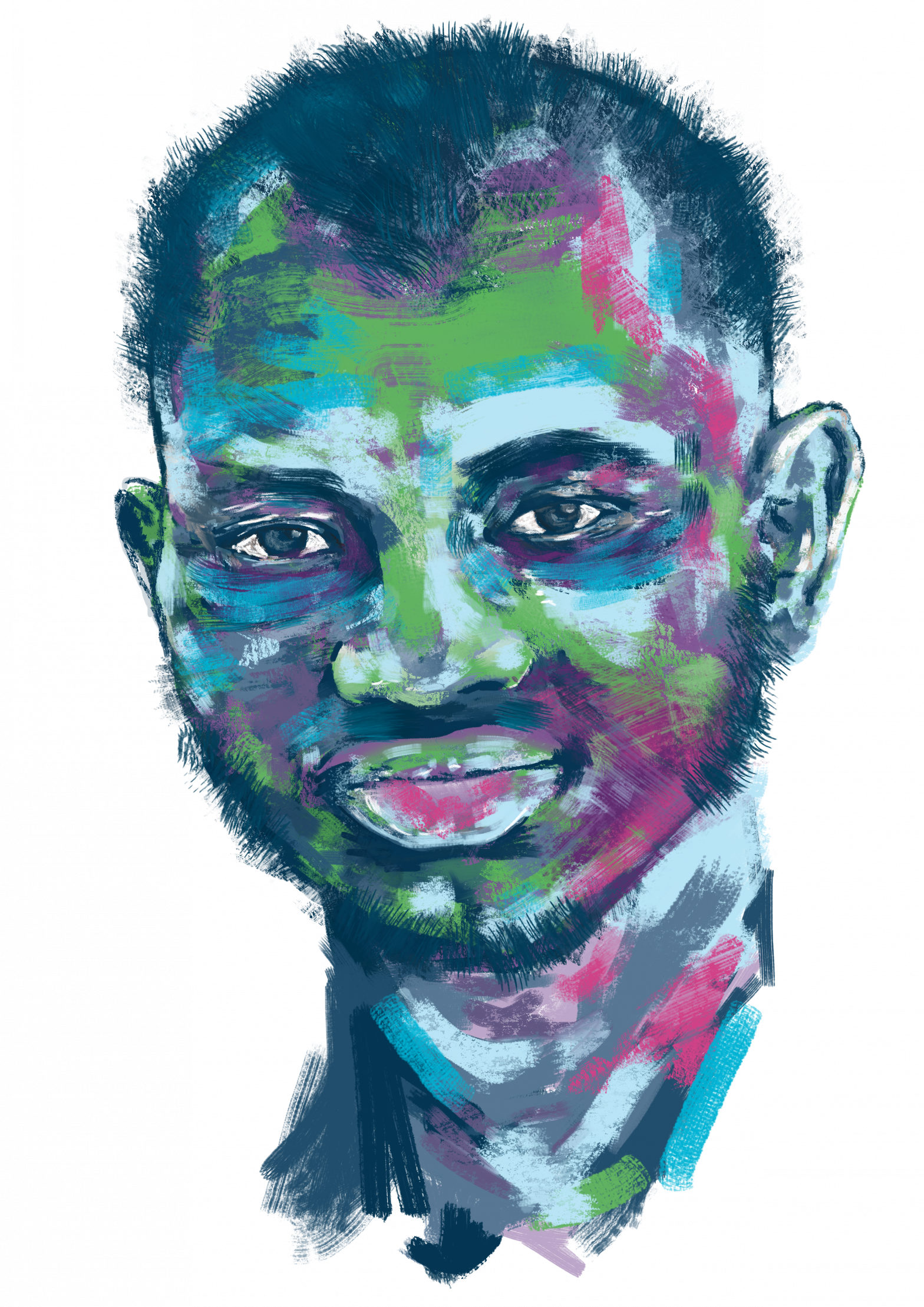I am Syafiq from Malaysia and I am living with Hypohidrotic Ectodermal Dysplasia (HED).
I love hiking in the jungle and jogging (which previously I feared to try). This is because traveling and doing outdoor activities can be slightly difficult for me. I can’t sweat and I have a dry skin condition. As it’s generally known, sweating moistens the skin and helps in controlling body temperature. Malaysia has a humid climate throughout the year. The average temperature is between 21 and 32 Celsius so these conditions sometimes constrain me from doing outdoor activities or traveling. I was inspired by stories from the US-based Ectodermal support group. These activities made me healthier. It has changed my mindset on how I view my body’s abilities (especially in managing body temperature).
Malaysia has many food varieties and I enjoy tasting and trying out all types of food. The second challenge which I face daily is choosing the “right” food to eat due to the absence of teeth. I enjoy eating but I need to find food that has a soft texture and requires minimum chewing. These measures also help with digestion.
I am proud to be born with HED. I feel special and unique. This feeling only came to me after I paid more attention to my disorder after leaving home to enter university and researching about HED. I used to avoid answering people when asked about my physical differences. During my research on HED, I found H.E.D and Ectodermal Dysplasias community websites from Australia (oZED) and from the United States (NFED). These findings changed my perspective and inspired me to start a support group.
In 2018, I connected with the Malaysia Rare Disorders Society (MRDS) and was invited to join their programme called Rare Disease (RD) Youth Advocates. I was able meet other youths living with rare diseases. The RD Youth Advocates were challenged to start initiatives to increase public awareness of rare diseases. I took the challenge and started an initiative called ‘WAUlahh’. The objective of ‘WAUlahh’ is for individuals living with rare diseases to share their experiences and to provide correct information about their disorders to the public in the Malay language using social media platforms.
My PARENTS are my biggest supporters. Without them, I cannot imagine how I would have turned out. They made every effort and spared no expense to obtain a diagnosis for me when I was a child and to find out about the disorder. That has improved my journey in life.
After the doctor informed my parents about the HED diagnosis and explained how my future would be, my parents decided to treat me like my other siblings. No special treatment for me. They sent me to a public school, encouraged me to play with other kids, and allowed me to decide my hobbies and my ambition.
To protect me from discrimination, my parents allowed others to be around me whilst they took effort to educate them about HED. For example, that HED is not contagious and that it is only a physical difference. They also encouraged me to make friends and to be involved in any activity that may interest me.
My family and friends bring me comfort and joy. I appreciate them more as I grow older and value moments spent with them. I currently work in another state. I “balik kampung” or return to my hometown once a month to visit my parents and family. I look forward to these monthly visits besides enjoying some me time by going to the beach.
During the weekends when I am not at my hometown, I spend time with my friends. We will plan an outdoor activity such as a walk in the park, jungle trekking or visiting a tourist spot.
